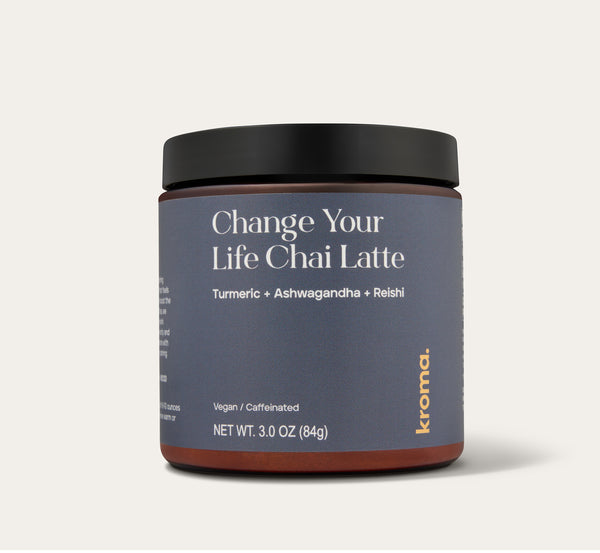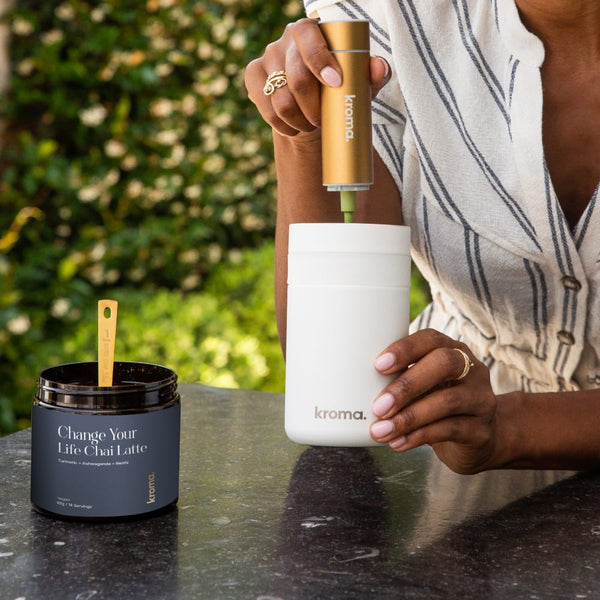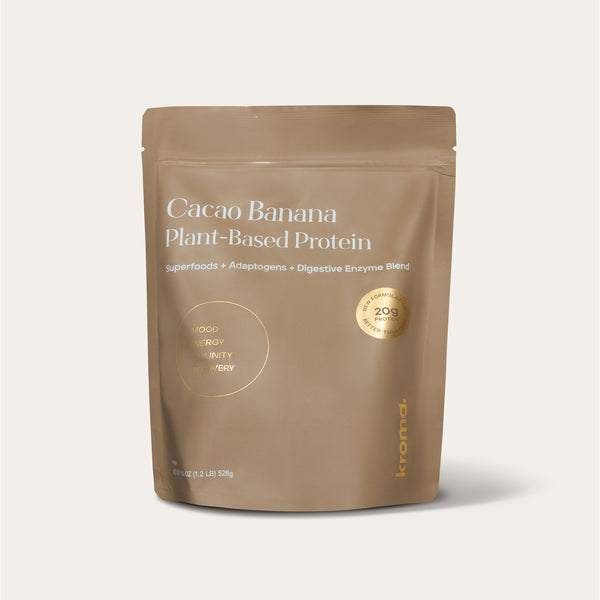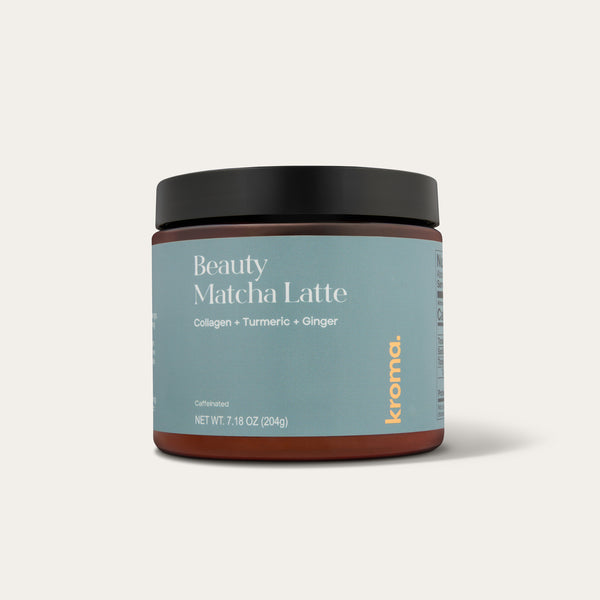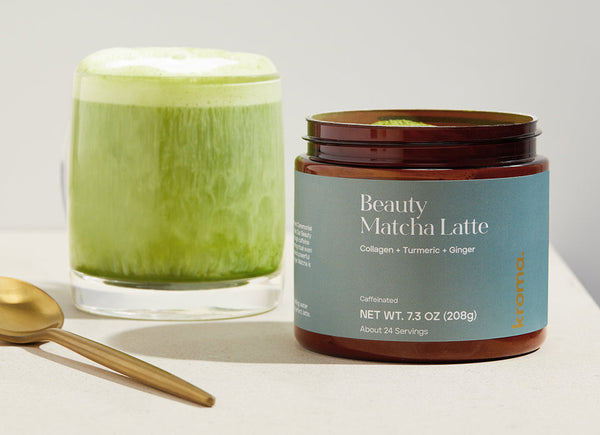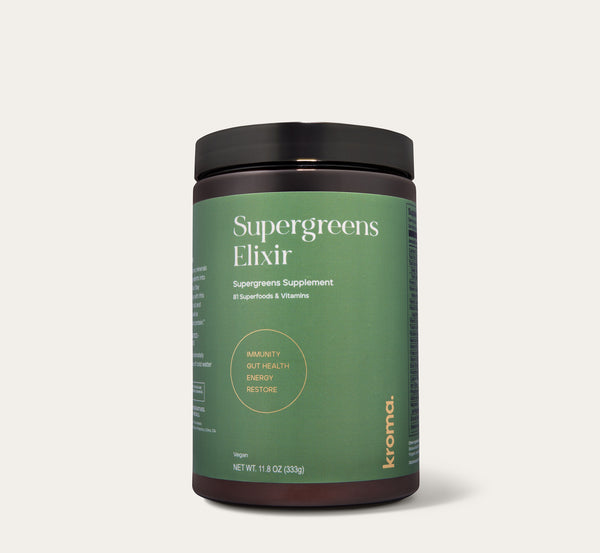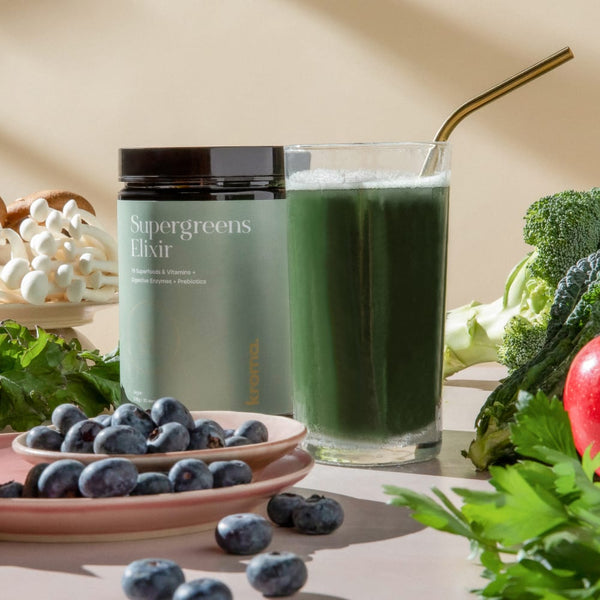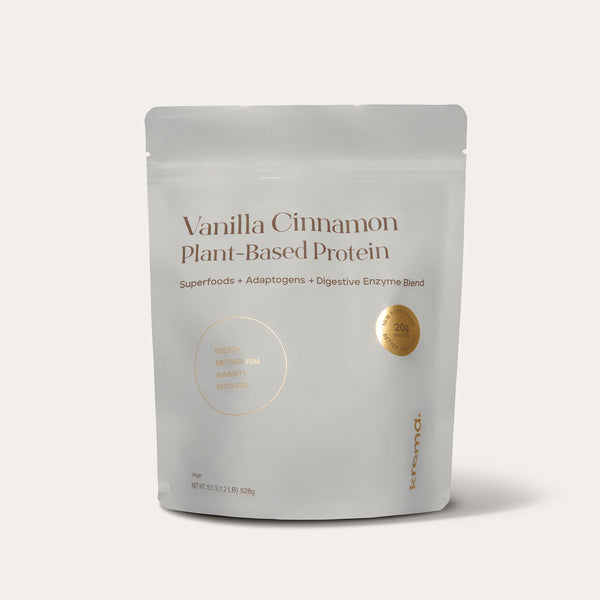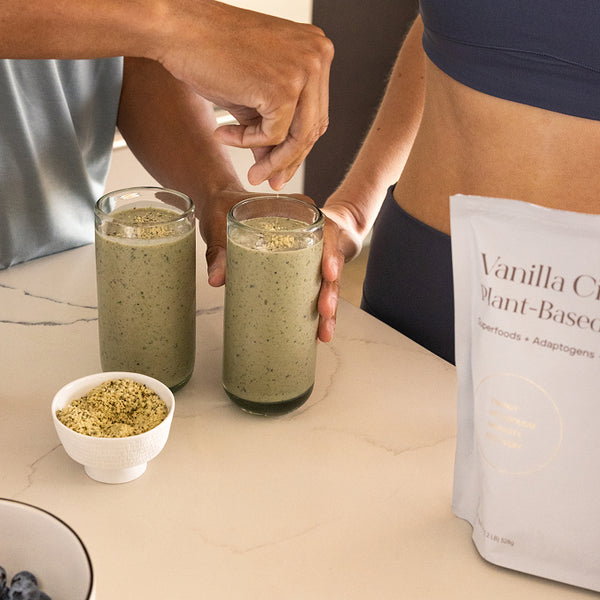Superfoods that have been used for thousands of years are finally making their way back into the limelight, and it's about time. Ashwagandha and maca are two such foods — they've both been consumed for their amazing nutritional values and health benefits, and we are finally learning why they've been a staple in the diets of indigenous cultures.
What Is Ashwagandha?
The adaptogenic herb ashwagandha, also known as winter cherry or Indian ginseng, is an evergreen shrub native to Africa and the Middle East. Ashwagandha has been used in Ayurvedic medicine for thousands of years to increase energy, support mental health, and reduce inflammation. In Sanskrit, “ashwa” translates to “horse” and “gandha” means “smell.” This is thought to compare ashwagandha to both the notable smell and strength a horse provides.
What Are the Benefits of Ashwagandha?
For thousands of years, ashwagandha has been used to treat many health problems. Here are our favorite benefits of this adaptogenic herb:
1. Helps Calm Your Brain
Ashwagandha offers many benefits for brain health. Ashwagandha has been shown to protect and support brain function, helping to boost memory and cognitive function.
Ashwagandha has been used for thousands of years to support mental wellness, and modern research backs up these claims.
2. Helps Your Body De-Stress
After a busy, stressful day, it is hard to release the tension in the body and de-stress. Your body produces cortisol in stressful situations where your “fight or flight” system tenses up your body, raises your heart rate, and gets you ready to face a threat. If you get stuck in a “fight or flight” loop, it can produce too much cortisol, causing sleep issues among other problems.
Ashwagandha has been shown to help your body balance cortisol levels, and it may provide the help you need to relax your body so you can get that deep sleep you’ve been needing.
3. Helps Support Your Immune System
Ashwagandha supports cell-mediated immunity and has antioxidant properties. Cell-mediated immunity does not involve antibodies; this type of immunity goes after intracellular pathogens. Antioxidants help the immune system by balancing the level of free radicals.
How Can I Include More Ashwagandha in My Diet?

With all of the benefits of ashwagandha, it's not surprising that more people are talking about this ancient herb. Ashwagandha is usually sold in capsule or powder form. You can also find it in gummies and supplements with other herbs for a specific goal, like supporting mental health.
Ashwagandha can also easily be added to smoothies and teas, like in our Change Your Life Chai Latte, which combines ashwagandha with other nourishing superfood ingredients, like reishi and turmeric, to hug you from within with powerful wellness support.
Can I Take An Ashwagandha Supplement Daily?
Ashwagandha can be taken daily when used appropriately or at the recommended dosage amounts for 1-3 months. However, it is important to monitor how your body responds. If in doubt, consult with a medical professional to make an informed decision about how you should use ashwagandha in your daily routine.
What Is Maca?

Also called Peruvian ginseng, maca is a cruciferous vegetable native to Peru. Maca is grown high up in the Andes and has been used by indigenous people in the region for over 1,500 years. The root is the edible part of the maca plant, much like a radish or turnip.
What Are the Benefits of Maca?
While maca does not contain naturally occurring hormones, it is a naturally endocrine-supporting adaptogen, which means it has nutrients that help support the body’s production of hormones. This endocrine support may be why maca has so many benefits. Here are some of our favorite benefits in particular:
1. Helps Boost Your Mood
When it comes to mood, maca can help in a couple of ways. One, maca is known to support mental health and balance emotional wellness by improving the antioxidant levels in the brain.
Two, maca can also help promote a healthy libido. Maca has been used as an aphrodisiac and fertility booster for centuries. While modern research is still working out the reasons why maca has such a positive benefit for sexual health, there is ample anecdotal evidence to support these claims.
2. Helps Fight Free Radicals
Maca powder contains glucosinolates and macamides, two compounds that have been shown to produce antioxidants that protect against free radicals and oxidative stress. These antioxidant properties can benefit heart, brain, reproductive, and whole-body health.
3. Helps Increase Your Energy
If you need a little boost when you wake up but don't like the feeling of caffeine, you may want to try incorporating maca in the mornings. Most of the research regarding maca and energy is in the sports world.
Athletes have been using maca to boost energy, increase performance, and improve muscle recovery, with great anecdotal results. One study showed that cyclists who took a maca supplement improved their 40 km cycling time compared to the placebo participants.
4. Helps Bring Nutrients Into Your Diet
Just like its cruciferous relatives, maca is full of nutrients. In an ounce of maca you will find carbohydrates for energy, fiber for gut health, and a good amount of protein. It also contains more vitamin C than the daily recommended value, which adds to its antioxidant benefits. Major minerals, like potassium, calcium, and phosphorus, and trace minerals, like iron, selenium, and zinc, are also found in maca. Minerals are important for keeping a lot of bodily functions running properly and for building hormones and enzymes.
How Can I Include More Maca in My Diet?

Maca is generally sold in powder form or in a capsule as a supplement. Maca powder can be added to smoothies, oatmeal, chia pudding, or your morning tea. Maca has an earthy, nutty taste that, when added to other foods, does not overpower their flavor.
How Often Should I Take Maca?
You have the option to incorporate a daily maca supplement into your routine. The ideal dosage can be tailored to your individual requirements or your body's tolerance. A widely accepted and safe daily amount is typically under a teaspoon's worth, which is equivalent to approximately 3.1 grams, for no more than four months.
Can I Take Ashwagandha and Maca Together?
Absolutely! While it is generally considered safe to take ashwagandha and maca together, it is important to assess your individual health needs and how these two superfoods may interact with other supplements or medications. Consult a health professional before starting any new supplements or if you have any medical conditions.
Is One Better Than the Other?
To us, a superfood is a superfood. Both ashwagandha and maca have amazing health benefits, and we don’t believe that one is better than the other — it really comes down to what you need in your health and wellness journey.
Are you looking for something that may relax you and help you sleep? You may want to try Ashwagandha. If you are looking for something that is going to boost your energy, support sexual health, and lift your mood, give maca a try.
If you want all of the above, consider trying ashwagandha and maca together in your afternoon smoothie or your morning tea.
The Bottom Line: Ashwagandha and Maca Together Create the Ultimate Combo

Ashwagandha and maca are both amazing superfoods. Ashwagandha has been known to support mental health, reduce stress, and aid in sleep. Maca has been shown to increase energy and support reproductive health. They both support the body with their antioxidant power. Ashwagandha and maca together can provide a unique combination of benefits. Both of these superfoods are superstars in our book.
At Kroma Wellness, we believe in bringing people the most nutritious superfoods in a delicious, convenient way, which is why we include maca root and ashwagandha in many of our products.
Looking to take superfoods beyond your morning cup? Try our 5-Day Reset, which is packed full of functional superfood nutrition to help you reshape how nutrition feeds your everyday wellness.
Other Frequently Asked Questions About Ashwagandha and Maca
Here are answers to common questions about these unique herbs and their potential benefits, uses, and considerations.
Are Ashwagandha and Maca the Same?
Ashwagandha and maca are not the same. They are two distinct herbs with unique origins, properties, and benefits. Ashwagandha is an evergreen shrub native to Africa and the Middle East that supports mental health. Maca is a root vegetable (similar to a turnip or radish) from Peru that helps boost your mood and energy.
What Does Maca Do for Females?
Research indicates that maca helps balance hormones and alleviate or reduce symptoms of menopause in women. It is also used as a fertility booster and enhances emotional wellness.
What to Avoid When Taking Maca?
It is essential to consider the following before taking maca, to avoid negative effects or symptoms:
- Excessive dosage: Do not take more than the recommended or prescribed dosage amounts. Doing so can cause digestive issues.
- Interaction with medication: Maca could interact with certain medications such as those that affect your hormone levels or endocrine system.
- Allergies: Exercise caution if you have known allergies to cruciferous vegetables related to the maca plant or if you have allergy concerns.
- Pregnant or breastfeeding: While there is limited information on the effects of maca on women who are pregnant or breastfeeding, it’s generally recommended that women avoid consuming maca or speak to a healthcare professional before use.
Does Maca Increase Testosterone?
There is limited or no data on whether maca increases testosterone levels. However, evidence suggests maca helps stimulate the body to produce, regulate, and balance hormones.






